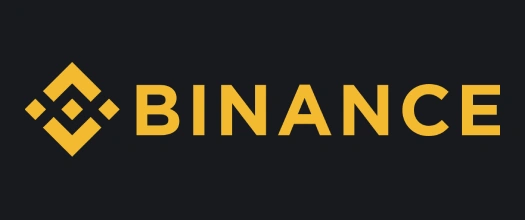The cryptocurrency market in the United Kingdom has experienced significant growth in recent years and is poised for steady expansion, driven by increasing interest in digital assets such as Bitcoin. Market research estimates the UK crypto market generated around $334 million in revenue in 2024, with projections suggesting this will continue growing at a compound annual growth rate (CAGR) of approximately 11% in the coming years.
While UK-based Bitcoin owners represent less than 1% of global Bitcoin holders, the country’s regulatory clarity and proactive approach to becoming a global crypto hub are likely to enhance its influence in the broader cryptocurrency ecosystem. User adoption rates are rising steadily, contributing to a dynamic and evolving market in the UK.
 Kraken
Kraken Uphold
Uphold Coinbase
Coinbase Binance
BinanceBelow, you can find more information about the leading Bitcoin trading platforms in the UK:
- Kraken, an FCA-registered cryptoasset firm, facilitates the buying, holding and swapping of Bitcoin and more than 350 other cryptocurrencies, allowing new UK customers to start with deposits ranging from £1 to £150, depending on the payment method used.
- Uphold, an FCA-approved cryptoasset firm, allows users to buy, sell and hold more than 300 cryptocurrencies, including Bitcoin. The exchange appeals to UK Bitcoin traders with its transparent pricing, auditability and authorisation from the Financial Conduct Authority (registration number 938277). Bitcoin trading fees range from 1.4% to 1.6%.
- Coinbase, another option for UK Bitcoin traders, operates in full compliance with FCA requirements under reference number 900635. The exchange enables the buying, selling and storing of more than 240 cryptoassets, allowing UK customers to deposit pounds sterling directly from their bank accounts without paying additional fees.
- Bitstamp offers some of the most favourable Bitcoin trading conditions in the industry, coupled with deep liquidity and the availability of advanced order types. The exchange is particularly well suited to the needs of high-volume and arbitrage Bitcoin traders.
Selecting the right exchange is crucial for UK traders seeking exposure to Bitcoin. This article guides you through the best Bitcoin exchanges available in the UK, focusing on their unique features, regulatory compliance and trading conditions. We also delve into the specifics of Bitcoin trading in the UK, including local regulations, storage options and tax implications.
Our multi-faceted methodology for selecting the best Bitcoin exchanges in the UK is based on several key factors, including compliance, security, fee structures, overall user experience and customer support. By the end of this article, you should have a clear understanding of the top Bitcoin exchanges tailored to the needs of UK traders.
Bitcoin Regulations in the UK
Bitcoin, the first and most widely recognised cryptocurrency, operates on a decentralised network using a proof-of-work (PoW) consensus mechanism. This process requires miners to solve complex cryptographic problems to validate transactions and secure the network, earning bitcoins as a reward. While Bitcoin itself is decentralised and global, using and trading it is subject to UK national regulations.
The primary regulatory authority overseeing crypto activities in the UK is the Financial Conduct Authority (FCA). Cryptoasset companies operating within the UK are required to register with the FCA and adhere to its regulations. A key aspect of this regulatory framework is compliance with anti-money laundering (AML) and counter-terrorist financing (CTF) regulations. These regulations necessitate that cryptoasset businesses also implement robust procedures for verifying the identity of their customers (know your customer – KYC) and for monitoring and reporting any suspicious transactions.
Furthermore, the FCA has taken a firm stance on certain high-risk cryptocurrency activities. Notably, it banned the trading of cryptocurrency derivatives, such as contracts for difference (CFDs), futures and options, by retail customers, deeming these products too complex and high-risk for the average investor. This leaves the market for such derivatives open only to professional traders and eligible counterparties.
The FCA’s regulatory approach has evolved significantly, culminating in the publication of Discussion Paper DP25/1 in May 2025, which sets out detailed proposals to regulate a wide range of cryptoasset activities, including trading platforms, intermediaries, lending and borrowing, staking, decentralised finance (DeFi) and the use of credit for crypto purchases.
The UK’s distinct regulatory framework for cryptoassets combines tailored legislation under the Financial Services and Markets Act 2000 (FSMA), FCA oversight of a broad range of crypto activities, robust consumer protection and a balanced approach to innovation. It represents a significant evolution from AML-only oversight towards comprehensive regulation, designed to ensure market integrity while supporting the growth of the UK crypto sector.
While the UK is no longer part of the EU and has not adopted the EU’s MiCA regulation, it retains a unique approach tailored to UK economic and regulatory priorities, whilst closely monitoring international developments.
Overall, Bitcoin-related activities in the UK are becoming subject to comprehensive and evolving regulation aimed at balancing innovation with consumer protection and financial-system integrity. Firms and users operating in the Bitcoin ecosystem should expect increased regulatory oversight and compliance requirements as the FCA implements these new rules throughout the remainder of 2025 and into 2026.
How Bitcoin Exchanges Differ from Bitcoin Brokers
Under FCA regulations, effective from 6 January 2021, retail traders in the UK are prohibited from trading crypto derivatives such as CFDs, futures, options and exchange-traded notes (ETNs), which remain exclusive to professional investors. However, retail traders are not banned from trading cryptocurrencies directly on exchanges – they can still buy, sell and hold assets like Bitcoin and Ethereum through FCA-registered platforms. The derivatives ban specifically targets high-risk leveraged products, not spot trading of underlying cryptoassets.
Bitcoin exchanges facilitate direct peer-to-peer trading, allowing users to self-custody assets in personal wallets. They typically support more than 50 cryptocurrencies, including niche tokens, with lower fees for active traders. Brokers act as intermediaries, holding assets custodially and offering a curated selection of major cryptos such as Bitcoin and Ethereum. While brokers provide simplified interfaces, they charge higher fees and may expose users to counterparty risk.
Types of Cryptocurrency Exchanges Available to UK Traders
UK traders have access to a variety of cryptocurrency exchanges, each designed to meet different trading needs and preferences. The choice of exchange depends on factors such as security, liquidity and the level of control customers wish to have over their Bitcoin transactions. Below are the most common types of exchanges available to UK traders, together with their key features and advantages.
Centralised Exchanges (CEXs)
Centralised exchanges are operated by a single entity that manages client funds and facilitates transactions. They are known for their high liquidity and user-friendly interfaces, often offering additional features such as margin trading and futures contracts. Centralised exchanges typically hold the private keys of their customers, which can be a downside owing to the potential risk of hacking or theft. These exchanges are ideal for traders seeking convenience and a wide range of trading options, but who are also comfortable with the potential risks associated with centralised custody.
Decentralised Exchanges (DEXs)
Decentralised exchanges (DEXs) are a key part of the decentralised finance (DeFi) ecosystem, allowing users to trade directly with each other through smart contracts. They offer increased privacy and security, as users retain control of their private keys and funds. However, DEXs can have lower liquidity and may offer fewer tradable coins compared with centralised exchanges. They are best suited to traders who prioritise security and are comfortable with the technical aspects of managing their own wallets.
Peer-to-Peer (P2P) Exchanges
P2P exchanges facilitate direct transactions between buyers and sellers, often using an escrow system to ensure security. These platforms allow users to negotiate prices and choose payment methods, offering greater flexibility and privacy. However, P2P exchanges may have slower transaction times and require users to vet their trading counterparties. They are ideal for traders who value privacy and prefer a personalised trading experience.
Bitcoin Storage at UK-Friendly Crypto Exchanges
Safely storing your bitcoins is crucial, and the security of your digital assets depends significantly on the storage solution you choose. Understanding the different wallet types and their features is essential for UK traders looking to protect their investments whilst maintaining accessibility. Below is an organised categorisation of the crypto wallet types, grouped by their key attributes such as custody, connectivity and storage medium:
Wallet Types
- By Custody (control over the private keys)
Hardware Wallets – These are physical devices, such as USB drives, that store your private keys offline. They provide a high level of security, particularly against online threats, which makes them a popular choice for the long-term storage of significant amounts of Bitcoin. Examples include Ledger and Trezor. Users are responsible for keeping their seed phrase (a backup of their keys) safe. Losing this phrase can result in permanent loss of funds.
Software Wallets – These are applications or programmes installed on your computer or mobile device that store your private keys. They offer more convenience than hardware wallets but are less secure, especially if your device is compromised. It is crucial to use reputable software wallets and keep the software updated to minimise vulnerabilities. Examples include Electrum and Exodus. - By Connectivity (online vs offline storage)
Hot Wallets – Hot wallets are connected to the internet, making them convenient for frequent transactions but more vulnerable to hacking attempts. They are generally suitable for holding smaller amounts of Bitcoin and are intended for regular trading.
Cold Wallets – Cold wallets are stored offline, offering greater security. Hardware wallets and paper wallets are examples of cold storage. They are ideal for holding larger amounts of Bitcoin that you do not access regularly. - By Storage Medium
Hardware Wallets – These are physical devices, such as USB drives, that store your private keys offline. They provide a high level of security, particularly against online threats, which makes them a popular choice for the long-term storage of significant amounts of Bitcoin. Examples include Ledger and Trezor. Users are responsible for keeping their seed phrase (a backup of their keys) safe. Losing this phrase can result in permanent loss of funds.
Software Wallets – Software wallets are applications or programmes installed on your computer or mobile device that store your private keys. They offer more convenience than hardware wallets but are less secure, especially if your device is compromised. It is crucial to use reputable software wallets and keep the software updated to minimise vulnerabilities. Examples include Electrum and Exodus.
Paper Wallets – Paper wallets involve printing your private keys on paper. While secure from online threats, they are vulnerable to physical damage, improper handling and the complexities of securely using them for transactions. The ink can fade, the paper can be damaged or lost, and securely transferring funds from a paper wallet can be technically challenging.
Ways to Trade Bitcoin at Crypto Exchanges
For UK traders, Bitcoin can be traded through several methods on crypto exchanges, each catering to different strategies and experience levels:
-
Spot Trading:
Spot trading involves buying and selling Bitcoin at its current market price with nearly immediate settlement, which typically occurs within a short time frame depending on the blockchain. It is the most straightforward method, ideal for beginners or those looking to hold bitcoins long term. Traders can take advantage of price fluctuations without the complexities of leverage or derivatives. Spot trading is often preferred for its simplicity and lower risk compared with leveraged trading. Prices can fluctuate significantly, and you can lose money if you buy at a high point and sell at a low point. -
Margin Trading:
While the FCA has banned the trading of cryptocurrency derivatives for retail customers since 6 January 2021, professional traders can still engage in margin trading on some exchanges. This allows them to borrow funds from the exchange to increase their trading capital, potentially amplifying both profits and losses. Margin trading involves higher risk and requires a sophisticated understanding of the market. FCA-regulated platforms block retail access to crypto CFDs, whereas offshore platforms offer higher leverage but operate outside FCA jurisdiction. -
Futures and Options:
Similar to margin trading, cryptocurrency futures and options trading are also restricted to professional traders in the UK. Futures are contracts to buy or sell Bitcoin at a predetermined price on a future date, while options give the buyer the right, but not the obligation, to buy or sell Bitcoin at a specific price within a certain timeframe. These are complex instruments used for hedging or speculation. -
P2P Trading:
Peer-to-peer trading works by directing trades between users, bypassing traditional order books. P2P platforms enable direct GBP-to-crypto trades without intermediaries, often at lower fees than traditional exchanges. Users can negotiate prices or choose fixed-rate offers, with escrow systems ensuring security during transactions. -
Automated Trading:
Automated trading uses bots or algorithms to execute trades based on predefined rules. Some exchanges offer built-in automation tools for recurring buys and stop-loss orders, while advanced users code custom bots for high-frequency trading. Risks include technical failures and market volatility.
Costs of Bitcoin Exchange Trading
Trading Bitcoin involves various fees and costs that can significantly impact profitability. Understanding these expenses is essential for UK traders looking to optimise their profits and minimise unnecessary expenditures. While fees vary across exchanges, they generally fall into several categories, each affecting the overall cost of trading differently.
Maker and Taker Fees
These fees are charged based on whether a trader provides liquidity (maker) or takes liquidity (taker) from the Bitcoin market. Maker fees are typically lower because makers place orders that are not immediately matched, adding depth to the order book and increasing market liquidity. Takers place immediate (market) orders, removing liquidity, and therefore pay higher fees. These costs are usually calculated as a percentage of the trade value and can vary depending on the exchange and trading volume.
Deposit and Withdrawal Fees
Exchanges sometimes charge fees for depositing or withdrawing funds, whether in fiat currency or cryptocurrency. Deposit fees are less common but may apply to certain payment methods like credit cards and bank transfers. Withdrawal fees are more prevalent and can vary based on the coin being withdrawn and the network fees associated with blockchain transactions.
Transfer Fees
These are internal fees charged by the exchange when moving Bitcoin from one wallet to another. They are separate from blockchain fees, as you shall see next, and are set by the exchanges themselves.
Blockchain Fees
Blockchain fees, also known as network fees, are paid to miners for processing Bitcoin transactions on the blockchain. These fees fluctuate based on network activity and transaction priority. During periods of high congestion, network fees can rise significantly. Higher fees generally result in faster transaction confirmation.
Inactivity Fees
Inactivity fees are charged by some exchanges for accounts that remain dormant for an extended period. They help cover the costs associated with maintaining inactive accounts. Customers who do not trade frequently should check their exchanges’ inactivity fee policies to avoid unexpected charges.
Other Fees
In addition to the fees listed above, traders should also be aware of other potential costs, such as account maintenance fees, custody fees (if the exchange offers custodial services) or fees for certain order types. Always carefully review the exchange’s fee schedule before trading to avoid surprises.
Exchanges with Bitcoin Lending
Lending enables coin owners to potentially earn passive income by lending their bitcoins to other traders or institutions. This service is available on both centralised (CEXs) and decentralised exchanges (DEXs). CEX customers typically lend their coins to the exchange itself or to margin traders on the platform.
While offering greater transparency, decentralised exchanges are not immune to smart contract vulnerabilities or exploits. Before participating in Bitcoin lending, carefully evaluate the terms and conditions, interest rates offered, security measures in place, and the reputation of the lending platform. Consider diversifying your lending across multiple exchanges to mitigate risk.
As per recent developments in the UK crypto regulatory landscape, the FCA published Discussion Paper DP25/1 in May 2025, proposing a regulatory framework that classifies cryptocurrency lending and borrowing as regulated activities requiring FCA authorisation. The FCA’s current suggestion is to largely restrict or prohibit such services to retail traders in the UK due to risks, while allowing continued access to institutional clients. However, the final regulatory rules are subject to ongoing consultation and could include risk-mitigation measures for retail access.
Tax Implications for Bitcoin Traders in the UK
For UK Bitcoin traders, understanding the tax implications is crucial. His Majesty’s Revenue & Customs (HMRC) classifies Bitcoin and other cryptocurrencies as digital assets, not as currency. This means that profits from selling, exchanging or using Bitcoin to purchase goods or services may be subject to Capital Gains Tax (CGT).
The amount of CGT payable depends on your total taxable gains in a tax year and your income tax band.
- For the 2025/26 tax year, each individual has a CGT annual exempt amount of £3,000, meaning gains up to this amount are tax-free.
- Gains above this threshold are taxed according to your total taxable income and income tax band: 18% CGT for basic-rate taxpayers (income up to £50,270) and 24% CGT for higher-rate taxpayers (income between £50,271 and £150,000) and additional-rate taxpayers (income above £150,000).
If you are trading Bitcoin as a business or receiving it as payment for services, it may be subject to Income Tax, with rates ranging from 20% to 45%, plus potential National Insurance contributions, depending on your total income level.
It’s essential to keep detailed records of all transactions, including dates, amounts and the GBP value at the time of each transaction. HMRC provides guidance on cryptoassets, and it’s advisable to consult with a tax professional for personalised advice, especially for complex trading activities. Remember to declare any taxable gains in your Self Assessment tax return.
How to Identify Reliable Bitcoin Exchanges
Choosing a reliable Bitcoin exchange is crucial for enjoying a secure and efficient trading experience. With numerous platforms available, it is essential to evaluate them based on multiple criteria to ensure they meet your needs and comply with local regulations. Below are the key factors to consider when selecting a Bitcoin exchange in the UK.
- Compliance with FCA rules and regulations: In the best possible scenario, you choose a Bitcoin exchange that not only offers robust security and low fees but also ensures full adherence to the rules and regulations of the financial authority.
- Range of Tradable Coins: Look for exchanges with a diverse selection of cryptocurrencies beyond Bitcoin, as this can help you with portfolio diversification.
- Wallet Type: Choose exchanges that offer secure and flexible wallets for Bitcoin storage.
- Fees and Trading Costs: Compare fee structures across multiple exchanges to find the most cost-effective option.
- Platform Features: Evaluate the availability of additional trading tools and features, including advanced order types.
- Overall Reputation: Research user reviews and feedback on dedicated platforms like Trustpilot.
- Minimum Transaction Size: Consider exchanges with low minimum transaction requirements if you have limited capital at your disposal.
- Payment Methods: Look for exchanges that support a varied range of payment options, including cards, wire transfers and digital wallets.
FAQ
Are Bitcoin exchanges legal and regulated in the UK?
Yes, Bitcoin exchanges are legal in the UK, but they must register with the Financial Conduct Authority (FCA) and comply with anti-money laundering (AML) and KYC requirements. Platforms like Kraken, Uphold and Coinbase are FCA-registered, ensuring user protection and regulatory compliance.
What factors should UK traders consider when choosing a Bitcoin exchange?
UK traders should consider several factors: regulation (preferably by the FCA), fees (trading, deposit, withdrawal), supported cryptocurrencies (if you plan to trade more than just Bitcoin), payment methods for GBP deposits and withdrawals (bank transfers, debit/credit cards), security measures, user interface (especially for beginners), customer support and available trading features (spot trading, advanced order types).
Are there exchanges that offer staking or earn programs for UK Bitcoin holders?
While you cannot directly stake Bitcoin, many exchanges, including Binance, Coinbase and Kraken, offer ‘earn’ programmes where you can lend out your Bitcoin to earn interest. These platforms also offer staking for other proof-of-stake cryptocurrencies. Always research the terms, risks and potential returns of these programmes before participating.
Can I trade Bitcoin anonymously in the UK?
Complete anonymity is nearly impossible. While some P2P exchanges offer more privacy, most regulated UK exchanges require KYC/AML verification. Even privacy-focused platforms have some traceability.
What is the minimum amount of Bitcoin I can buy?
The minimum varies by exchange and payment method. While often around £10, some exchanges may require higher minimums. Check your chosen exchange’s terms.